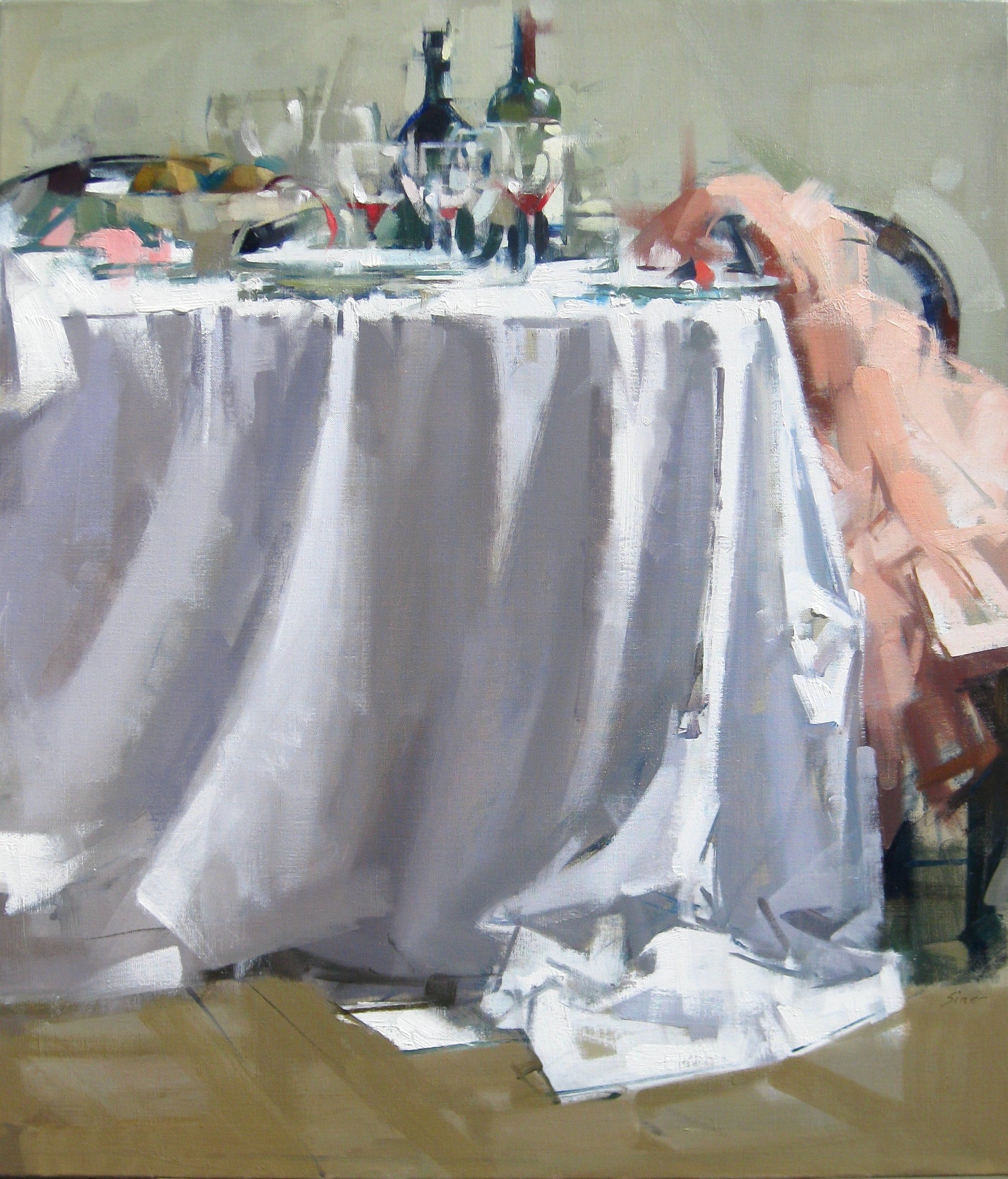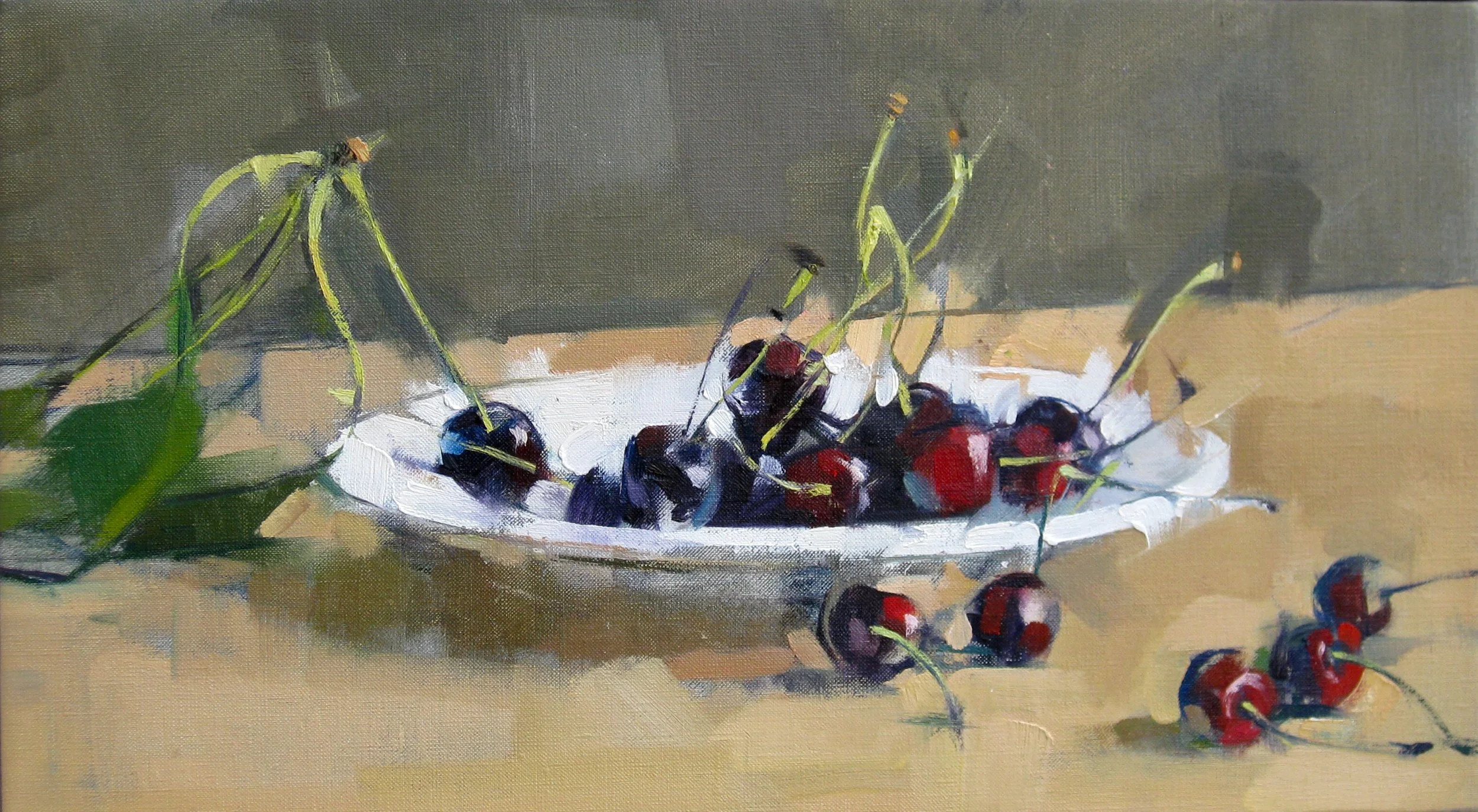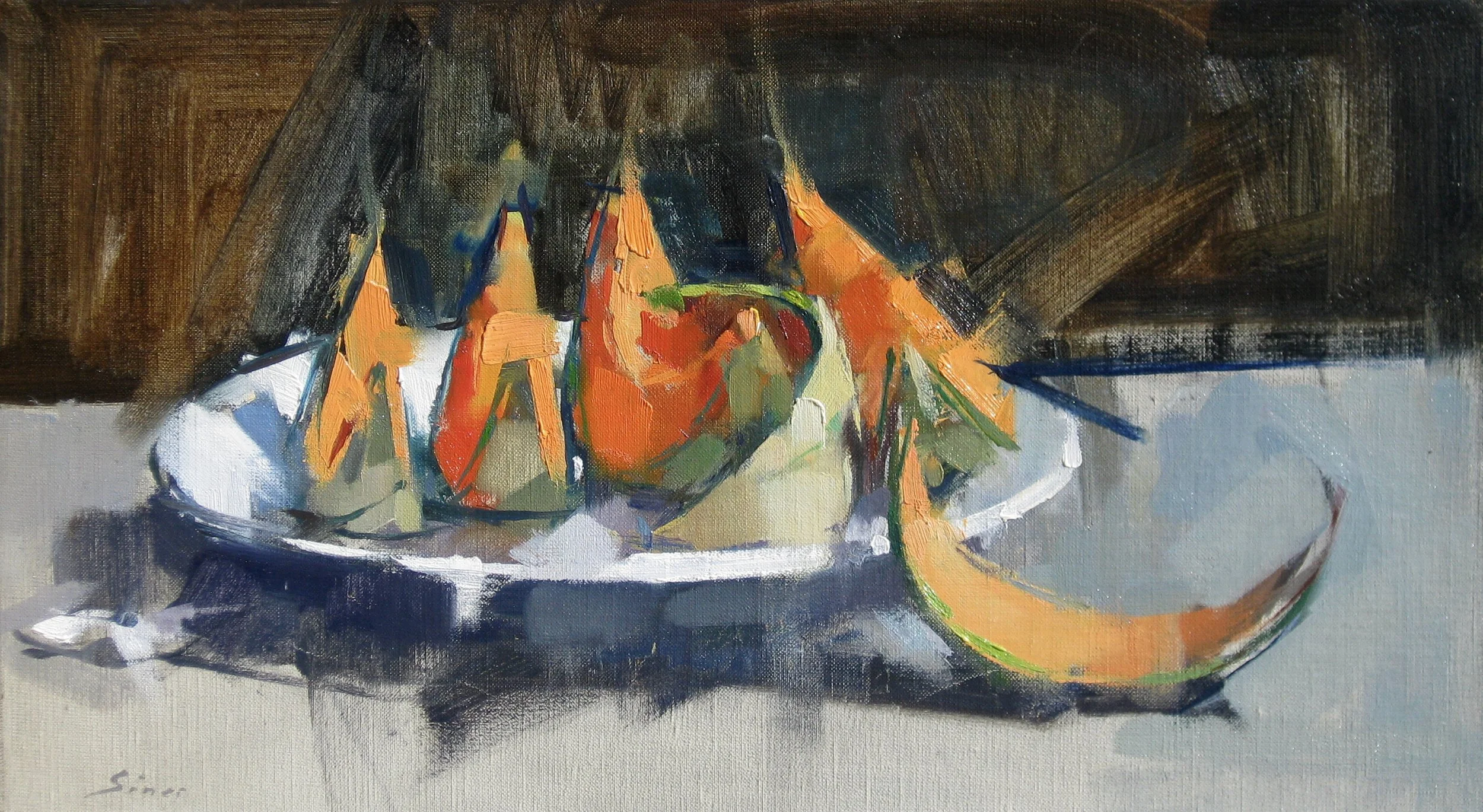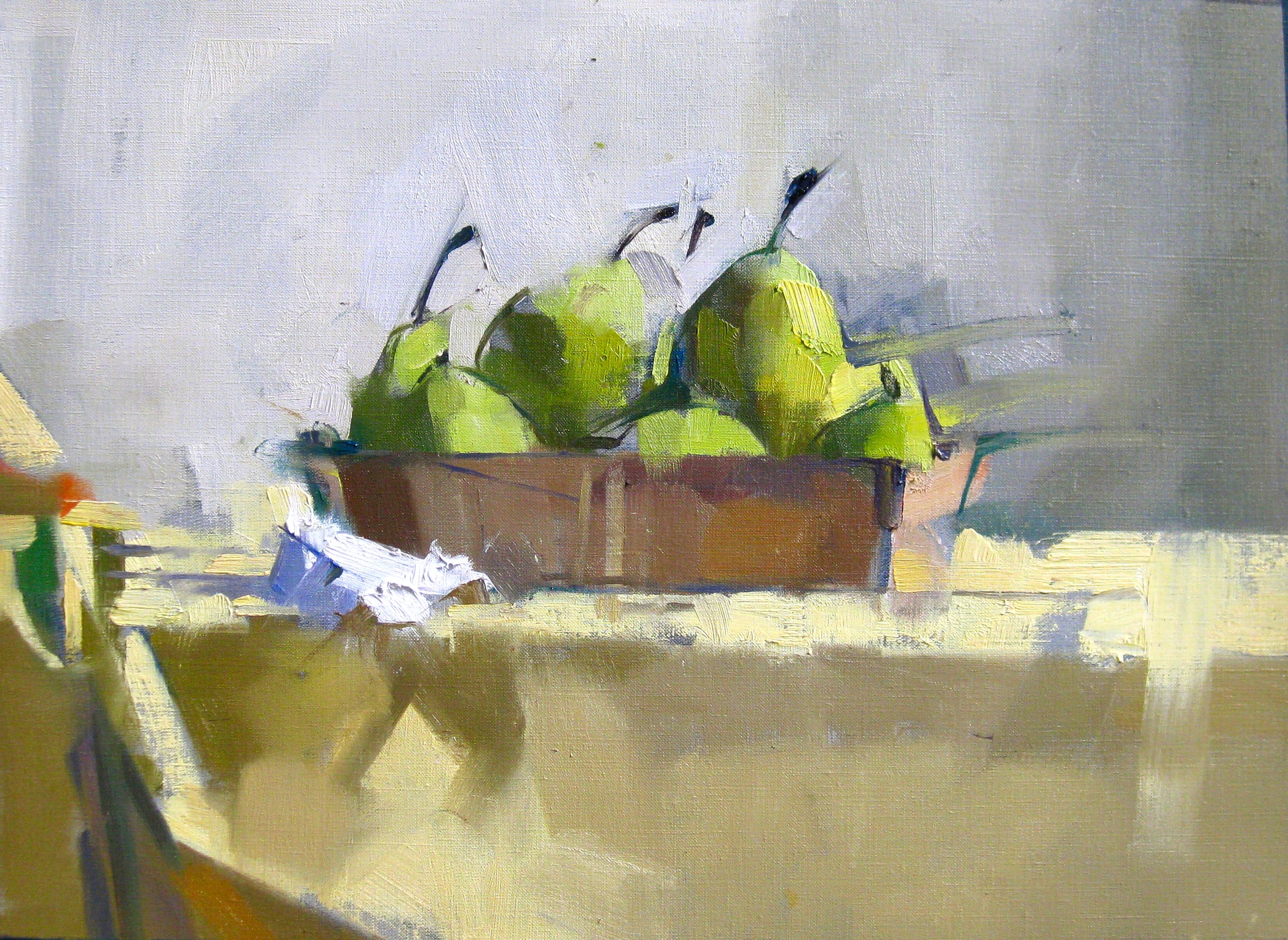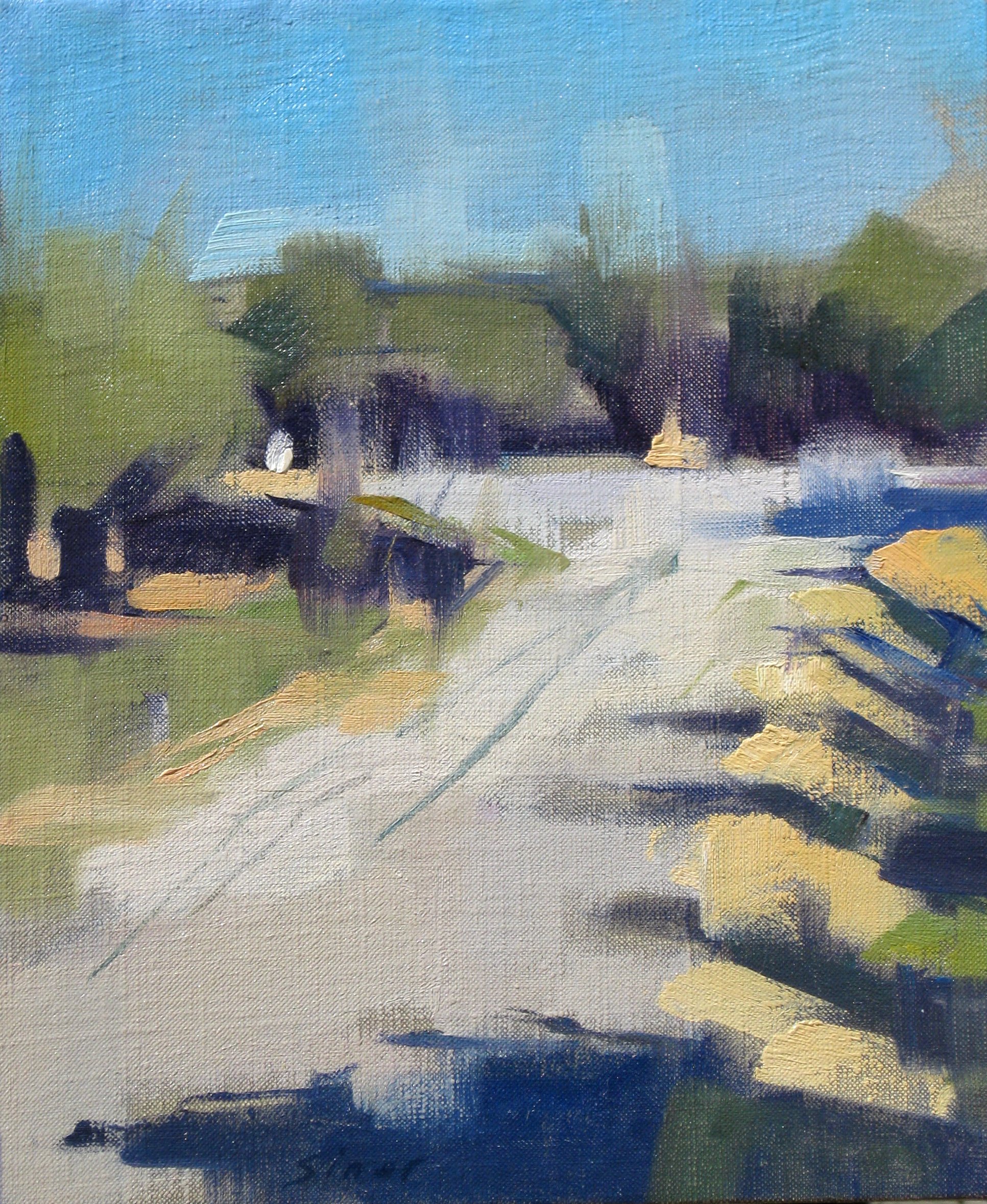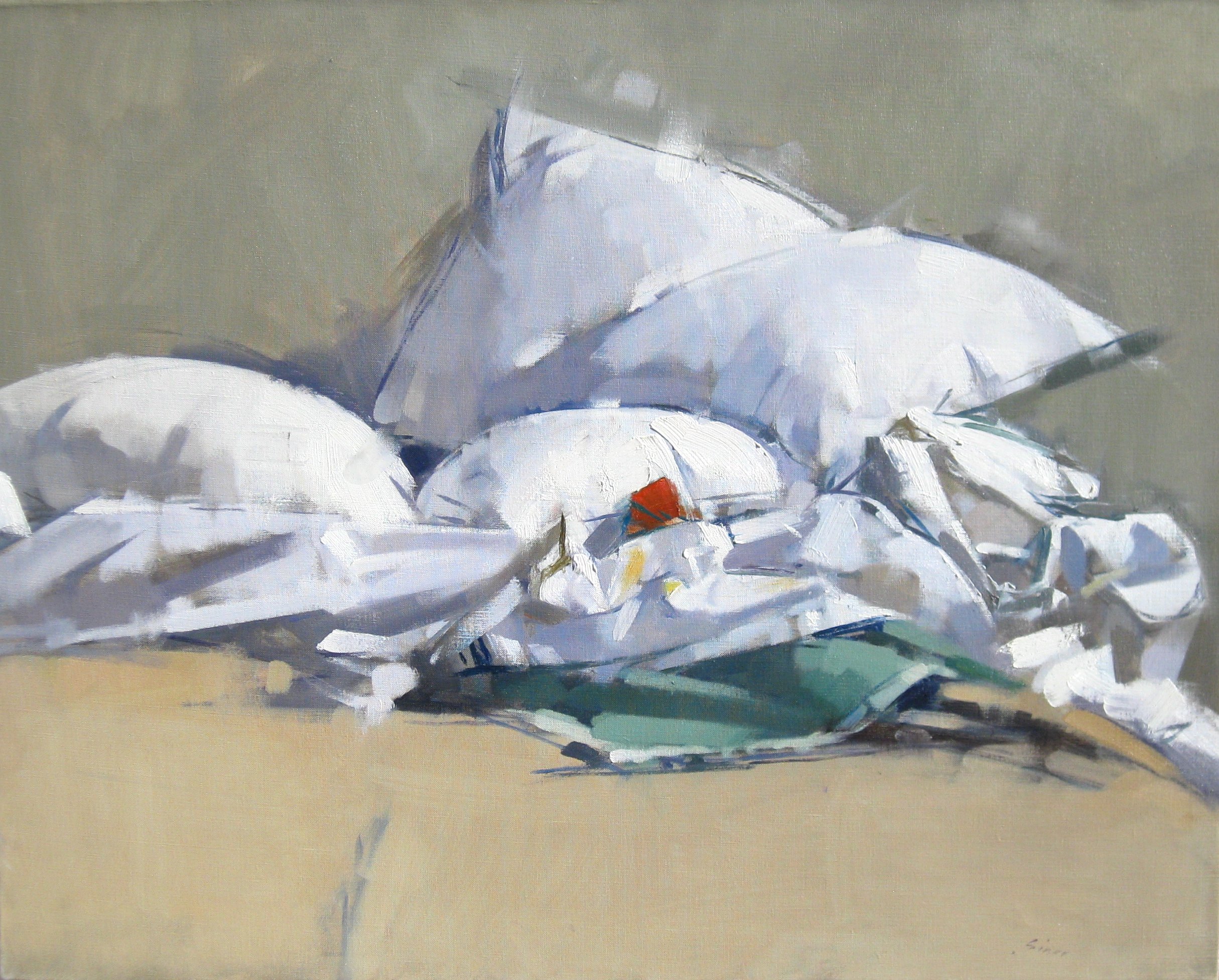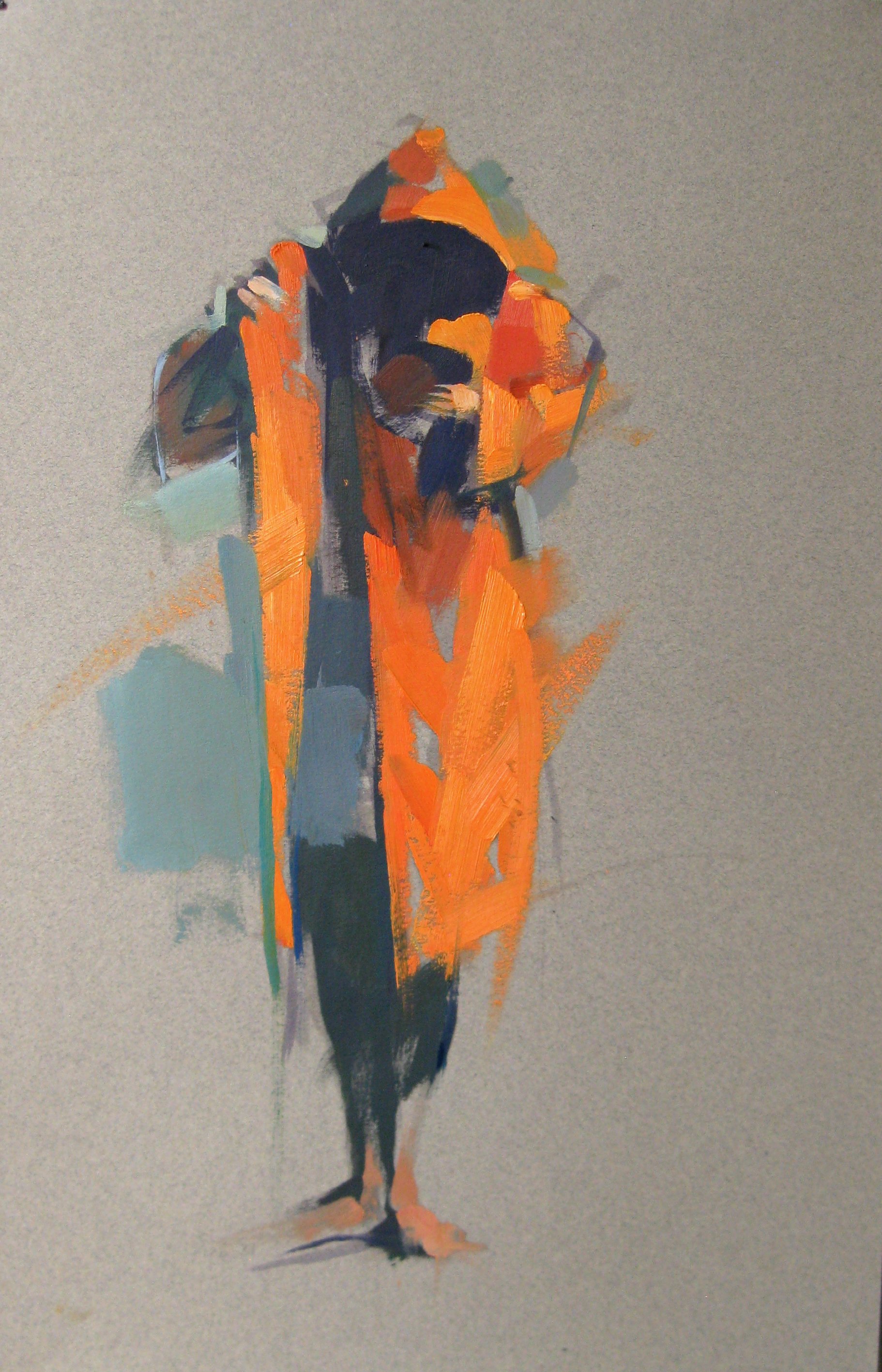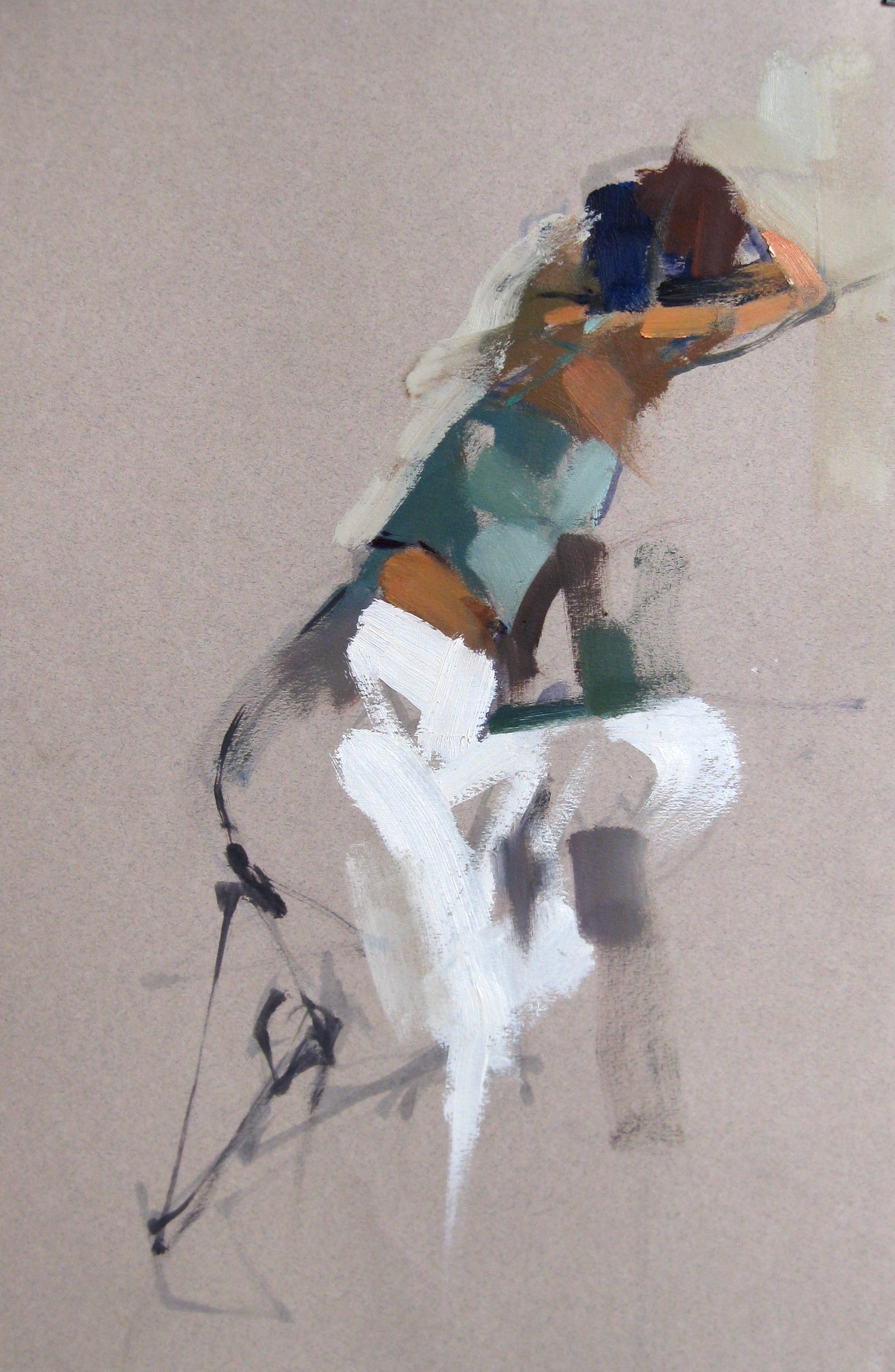Field of Vision: Maggie Siner
November 20th - January 18th, 2022
Maggie Siner's newest exhibition, Field of Vision, opens November 20th, with an Artist Talk by Maggie at 4pm, followed by the opening reception from 5-7pm.
Every painting in the exhibition demonstrates Maggie's mastery of translating what - and how - she sees: "Pure gesture and pure control at the same time".* Her subject matter spans figures, landscapes, and still lifes - each their own nuanced observation of Maggie’s reality.
Artist Statement
I paint directly from life; a live and immediate response to what I see. These are mostly ordinary objects and secret spaces revealed by patterns of light. Objects themselves may not be the stimulus to paint; more often it is the discovery of shapes and color relationships. Light is a great beautifier - it changes the plainest event into something extraordinary. Unusual juxtapositions of objects can be profound, or humorous. Empty spaces between things have a mysterious power of their own. I am moved by how weight, movement and story are revealed by gravity, by falling folds. Life is change, and this is belied by the stillness of painting, so I am particularly attentive to the movement and gesture inherent in my seeing. This gesture is re-enacted and captured in the properties of paint itself; thick, thin, wet, dry, drag, punch.
Painting is a way of finding out. The triangular interaction between my perceptions, my materials, and the world outside of me is a cognitive and existential experience that quite simply recreates the world. Each painting is a moment in time with a definite truth. Accuracy is critical! I don’t mean the accuracy of ‘objective reality’ (whatever that is), I mean the truth of my sensations.
Real world motifs are temporal, as is the painting experience itself, so there is an urgency to getting it all down in paint. This motivates fast-moving brushwork but is not necessarily compatible with the critical imperative of getting it exactly right. Much scraping and repainting occurs.
As the years go by my sensitivity to color, brushstroke and structure improve.
Biography
Maggie Siner is an American artist whose paintings are shown in Paris, Venice, London, New York, Washington DC, and in hundreds of collections around the world. Born in Providence, Rhode Island, she began her studies at the Art Students League of New York, graduated from Boston University (BFA) and American University (MFA) where she studied with Robert D’Arista. During her long artistic career she has lived for extended periods in France, China and Italy. Siner’s work is classically derived and highly structured while also being gesturally expressive. She works directly from visual perception, trying to catch vision ‘in the act’,focusing on light and the everyday world of objects and transience.
Siner is also a devoted teacher who has influenced a generation of painters. She has been on the faculty of l’Institute d’Universités Américaines and Lacoste School of Art in France, visiting professor at Xiamen University in China, artist-in-residence at Savannah College of Art and Design, Dean of Faculty at the Washington Studio School and teaches master classes in the USA and abroad. She is a frequent guest artist and public speaker. In 1976 Siner moved to France, exhibiting her work in Aix-en-Provence and Paris. She followed medical studies at the Faculté de Médicine in Marseille, taught anatomy at Georgetown Medical School in Washington DC, and completed facial reconstructions for law enforcement in Virginia. She is well known for her expertise in artistic anatomy as seen in her figurative sculpture. In 1991 she lectured in the six major art academies in China, and returned several times to teach painting at Xiamen University. Since 2008 she has been in Venice, enamored of that city’s ever-changing surfaces.
*Henry Allen, Pulitzer Prize for Criticism, 2000.
“Oh, what a pro she is. Pure gesture and pure control at the same time. She doesn’t paint subjects or objects, she paints paintings. Or she somehow warns you that the picture is an illusion, then makes you believe in it anyway. Artists do this, the fine ones. I marvel at her antic, cramped attack on the canvas, the way she holds the brush by the ferrule, exactly the way our teachers taught us not to hold it. Somehow life leaps out of this struggle. She opens things up, unzips our brains. She doesn’t tell me something new as much as something that has always been true.”
-Henry Allen, Pulitzer Prize for Criticism, 2000.


